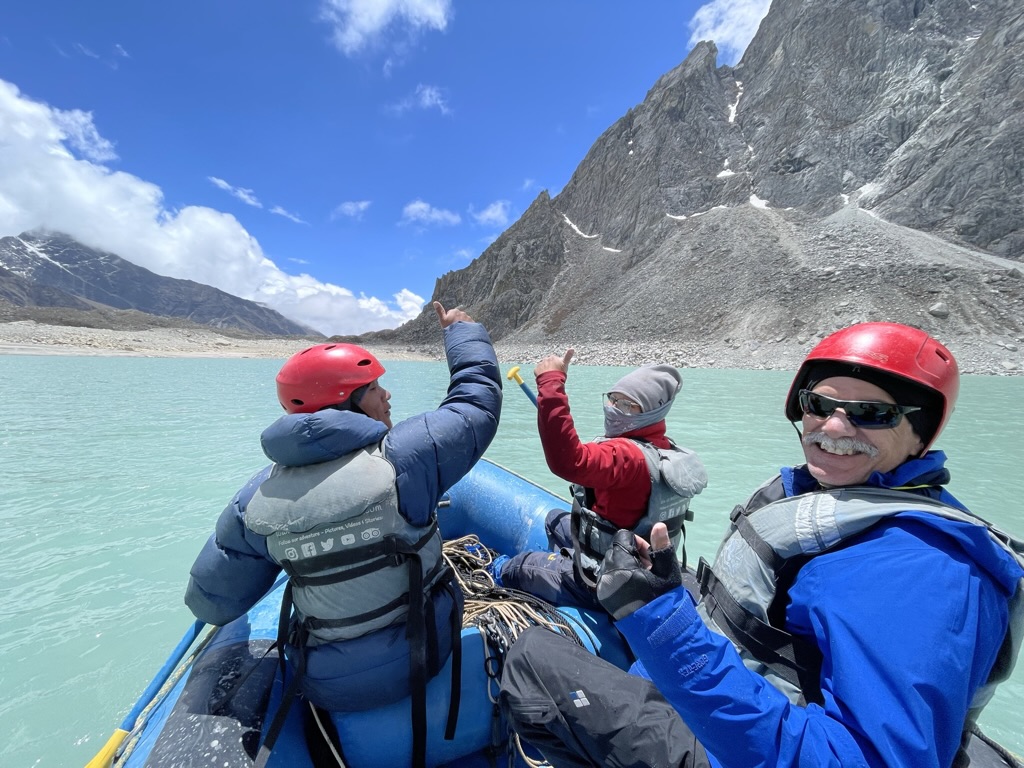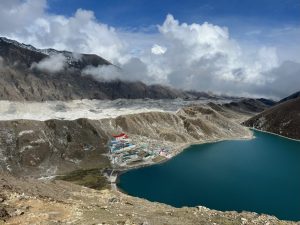Nepal Round Three


What do you do when a gastrointestinal illness takes out half of your research team that traveled nearly 8,000 miles to Nepal to study the effects of climate change on Buddhist holy lakes?
You press on.
An interdisciplinary group of Carolina researchers first journeyed to Mount Everest’s Khumbu region in summer 2018, returned in fall 2019 and — after COVID delayed the original return plans — made the trek again to the Gokyo Lakes in summer 2022.
The team consists of mathematicians Rich McLaughlin and Roberto Camassa, marine scientists Harvey Seim and Emily Eidam and religious studies scholar Lauren Leve.
Leve was not able to make the trek to the lakes this year due to other research she was conducting in Nepal, but she laid important groundwork for the team’s journey by securing needed paperwork and permits. She has provided ongoing counsel and support on this high-altitude region that is sacred to the Buddhist tradition. KEEP READING HERE
This article was originally published here By Kim Weaver Spurr, photos by Rich McLaughlin and Roberto Camassa.
Read about the researchers’ first trip to Nepal in summer 2018 and their return trip in fall 2019.
